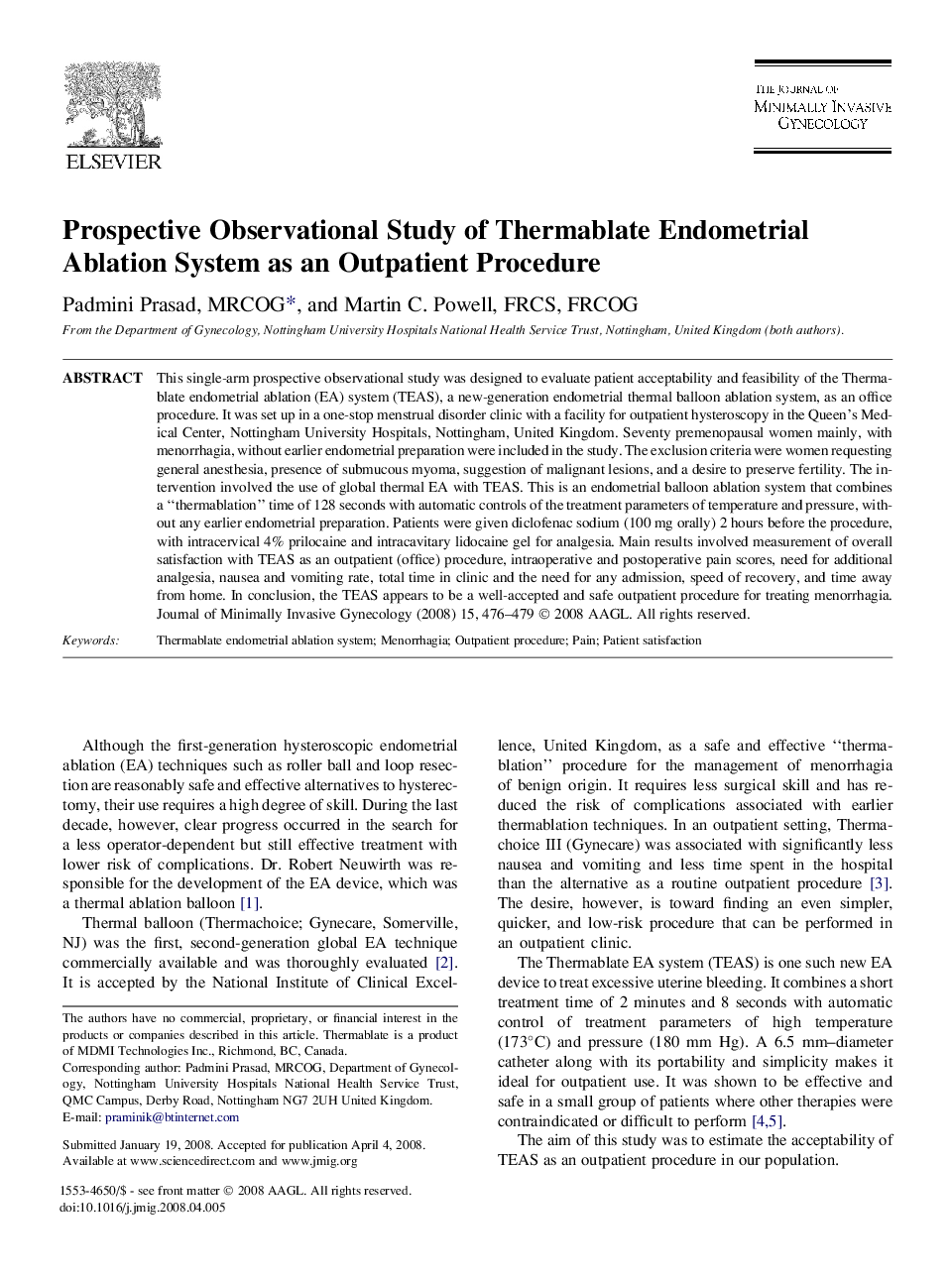| کد مقاله | کد نشریه | سال انتشار | مقاله انگلیسی | نسخه تمام متن |
|---|---|---|---|---|
| 3957521 | 1255372 | 2008 | 4 صفحه PDF | دانلود رایگان |

This single-arm prospective observational study was designed to evaluate patient acceptability and feasibility of the Thermablate endometrial ablation (EA) system (TEAS), a new-generation endometrial thermal balloon ablation system, as an office procedure. It was set up in a one-stop menstrual disorder clinic with a facility for outpatient hysteroscopy in the Queen's Medical Center, Nottingham University Hospitals, Nottingham, United Kingdom. Seventy premenopausal women mainly, with menorrhagia, without earlier endometrial preparation were included in the study. The exclusion criteria were women requesting general anesthesia, presence of submucous myoma, suggestion of malignant lesions, and a desire to preserve fertility. The intervention involved the use of global thermal EA with TEAS. This is an endometrial balloon ablation system that combines a “thermablation” time of 128 seconds with automatic controls of the treatment parameters of temperature and pressure, without any earlier endometrial preparation. Patients were given diclofenac sodium (100 mg orally) 2 hours before the procedure, with intracervical 4% prilocaine and intracavitary lidocaine gel for analgesia. Main results involved measurement of overall satisfaction with TEAS as an outpatient (office) procedure, intraoperative and postoperative pain scores, need for additional analgesia, nausea and vomiting rate, total time in clinic and the need for any admission, speed of recovery, and time away from home. In conclusion, the TEAS appears to be a well-accepted and safe outpatient procedure for treating menorrhagia.
Journal: Journal of Minimally Invasive Gynecology - Volume 15, Issue 4, July–August 2008, Pages 476–479